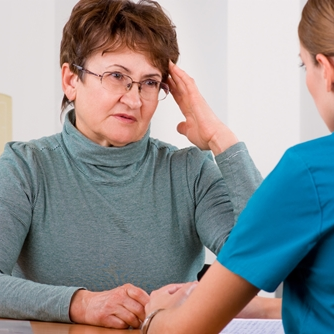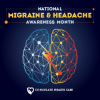Just about everyone will experience a headache or migraine at least once. These painful periods can interrupt your personal and professional life and make it difficult to function for a while. June is National Migraine and Headache Awareness Month, according to the American Headache Society. Here is some information on these cranial pains and how you can deal with their symptoms:
What causes headaches and migraines?
Many headaches and migraines are caused by certain triggers that reduce the size of the blood vessels in the brain, therefore depriving it of oxygen. These triggers can include:
- Light
- Sound
- Medication
- Caffeine
- Nicotine
- Alcohol
- Food
- Chemicals in the environment
- Stress
- Bad posture
- sinus trouble
- sleep trouble
- Dehydration

Primary headaches involve overactivity in your head and are not caused by a disease. Tension headaches, migraines and cluster headaches are a few examples of this variety. Secondary headaches are a result of a disease or situation, like sinusitis, carbon monoxide poisoning, a concussion or a brain aneurysm. Some headaches come on suddenly and are very painful right away while others slowly move in with a dull ache or throbbing feeling.
What is an aura?
The American Migraine Foundation shared that some people who have migraines will experience an aura beforehand. They may see light differently or have a change in their vision for an hour or so before their headache appears. Migraine sufferers might also have a non-visual aura, such as confusion, hiccups, dizziness, hypersensitivity to touch or even the temporary loss of the ability to understand language. You may have migraines but not experience any sort of aura, as well – not everyone experiences these pre-ache symptoms.
How can you prevent headaches and migraines?
You may have been raised thinking that simply drinking more water will reduce your likelihood of developing headaches and migraines. Unfortunately, that is not true for many people. While dehydration may be a trigger for cranial pain, downing a bunch of liquids won’t always address the issue or prevent the headache from happening. Time noted that getting ample sleep, icing your forehead, taking a hot shower and trying acupressure can all prevent and treat headaches. Also consider avoiding alcohol, caffeine and nicotine as they are all stimulants and may increase your risk of developing a headache or migraine.
What should you do if you frequently get headaches or migraines?
If you have migraines or headaches that occur often, it may be time to see a doctor. While these issues may not be serious, they might be signs of an underlying issue. Bring up your head troubles in an upcoming physical. For sudden onslaught headaches, consult a physician right away. Thunderbolt headaches, as they are called, can be caused by blood clots in the brain and require immediate attention. Also, headaches accompanied by confusion or memory loss should be addressed by a doctor right away. Many seniors take medications that may come with side effects like a headache, but that doesn’t mean the pain is normal. Speak with your doctor to ensure your prescription regimen isn’t causing you to experience frequent headaches.
If you found an error, highlight it and press Shift + Enter or click here to inform us.



